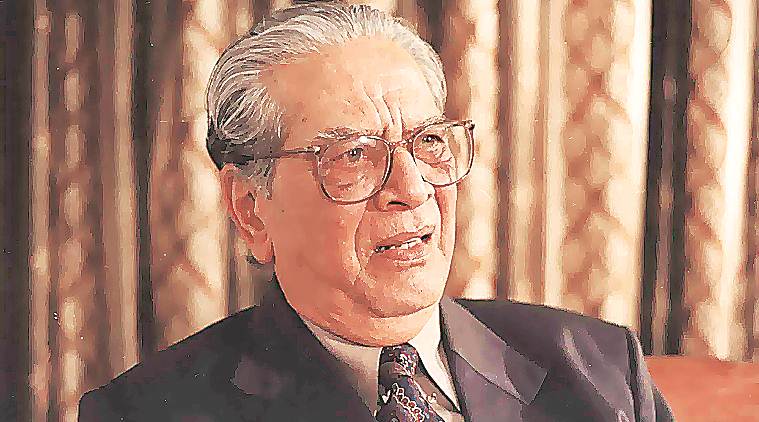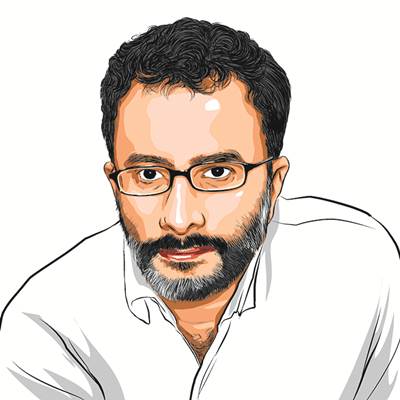Opinion For Shriram Lagoo, theatre was a serious art form and advancement of culture its function
It was a warning to my generation of theatrewallahs! Theatre is a serious art form and the advancement of culture is the function of the theatre movement.
 Dr Shriram Lagoo (1927-2019)
Dr Shriram Lagoo (1927-2019)  Dr Shriram Lagoo (1927-2019)
Dr Shriram Lagoo (1927-2019)
The date: December 9, 2006.
The place: Chavan Natyagruha, Pune.
The occasion: The third edition of the Roopvedh Pratishtan, a trust created by Deepa and Shriram Lagoo.
Vijay Tendulkar was to be bestowed the Tanveer Sanmaan. I was to be honoured with a youth fellowship, the Tanveer Abhyaasvrutti. The auditorium was jam-packed. The stage had a lot of heavyweight personalities, and there were many more in the audience. Grandiloquent speeches were being made and lofty dialectics were being bandied around. After the ceremony, a select few moved to a hall in a nearby hotel. More dialogue-baazi and a little bantering. It was well past midnight when I sauntered into the cloakroom, and said to myself in the mirror, a few minutes more, and then you can go home.
Just then the door opened. A dramatic entry. It was my host for the evening, Dr Lagoo. He said, “Budmaash!” A dramatic pause. He continued, “I’ve been keeping an eye on you throughout the evening. You escaped into the wings during the speeches, and during the party, you wandered off for a walk. Now, where will you escape?”
I mumbled my apology. Then we stood there and chatted for a long while. We spoke about his book, which demystified the science of voice through simple voice exercises for overworked stage actors, and how his practice as an ENT surgeon provided a scientific foundation. “If your pitch is Kali 2 (black 2), you must speak in Kali 2. Despite this, if you keep straining every nerve to reach Pandhari 4 (white 4), you will destroy your voice.”
Then we spoke about his letter to Bhalbha Kelkar, who was the president of Progressive Dramatic Association (PDA). This public letter criticised Kelkar for his narrow-mindedness during the Ghasiram Kotwal imbroglio. Lagoo used to act in the PDA plays and Kelkar was his director. Lagoo’s assessment: “Bhalba Kelkar was a Varkari of the Natya-Pandhari, a pilgrim on his way to the shrine of theatre. He worked till the end as devotedly as a pilgrim who sets out on a pilgrimage. But Bhalba’s morality was puritanical. He didn’t bother to intellectually analyse his work. That’s why PDA, which was founded in 1951, ceased to be progressive, 10 years later.”
It was a warning to my generation of theatrewallahs! Theatre is a serious art form and the advancement of culture is the function of the theatre movement.
Other than as a theatre theorist, my memory of Lagoo was that of a true theatre professional. A glowing example of this is how in a single day, he would perform the lead roles of three blockbuster plays that played to a full house: Natasamrat in the morning, Himalaychi Savli in the afternoon, and Gidhade in the night. It was an extraordinary testimony to his physical stamina and mental alertness — a true-blue athlete-cum-philosopher.
For theatre rasiks, he was memorable as Sridhar Kulkarni in G P Deshpande’s Uddwastha Dharamshala and then, Siddheswar Bhatji in Premanand Gajvee’s Kirwant. Other than the politics of the play, he was able to capture the pathos of the Brahmin character whose hands were tied up in an unusual sort of mannerism. It was non-verbal acting at its best.
He staged Antigone during the most repressive phase of the Emergency. As the state police was overseeing the censorship, Lagoo went to meet the officer. No one (including the omnipotent state) had any idea about the focal point of Antigone. In fact, the group was approached by Doordarshan officials, and the play was telecast. Subsequently, the vexed political issues in the play were discussed on stage and off-stage. Lagoo said, “It’s a mad, mad world, this realm of censorship.” One more lesson for us, theatrewallahs. Never ever give up.
With Vijay Tendulkar’s Gidhade, the censor board had spotted 150 highly objectionable bits and pieces. Lagoo and his team were nonplussed. Like all theatrewallahs, they had three options: One, to concede to the objections and delete the unsavoury bits from the play; two, cancel the show; or three, to carry on with the show in spite of the objections of the censor board. And that’s what Lagoo did.
Lagoo told the board chief that they didn’t accept the cuts that the board had suggested. The cuts were eventually reduced from 150 to 125, and then to 100. Who stood by the beleaguered theatrewallahs during this period? Interestingly it was the women: Kumud Mehta, Shanta Shelke, Sarojini Vaidya and Durga Bhagwat who would say, “The censor board is foolish! Continue to perform… you are doing a good job.”
Gidhade played a big role in Lagoo’s life. Ramakrishna Naik of the Goa Hindu Association attended a show of Gidhade. Now, Lagoo had criticised the Goa Hindu Association’s Raigadla Jenvha Jag Yete in the periodical, Rasaranga. Ramakrishna Naik told Lagoo that V V Shirwadkar (Kusumagraj) had written a new play. This was Natasamrat.
Lagoo was ready to play Ganpatrao Belwalkar. Natasamrat was to be mounted in one month. Lagoo had a busy schedule. He attended the first rehearsal of Natasamrat after memorising all the lines in the play. He did this for the first time in his life. This was Natsamrat, play with the cult classic line, “Nat mhanje bharvahak, lamaan” (We actors are but a nomadic tribe that transports goods from one place to another).
In the case of Lagoo, besides transporting the goods, he travelled across his beloved Maharashtra to raise funds for the Samajik Krutagnyata Nidhi and supported Medha Patkar’s Narmada Bachao Andolan and Narendra Dabholkar’s Andhashradha Nirmoolan Samiti.
As we exited that cloakroom in the wee hours of the morning, Lagoo quoted Thoreau, “If a soldier is walking out of pace, he is probably hearing a different drummer. (The famous Lagoo tremor here). Try to be that soldier.” Lagoo followed what he preached. He didn’t hear the drumbeats that the rest of the society was dancing to. His drummer was different.
This article first appeared in the December 20 print edition titled ‘Philosopher of Marathi stage’. Ramanathan is Mumbai-based playwright





